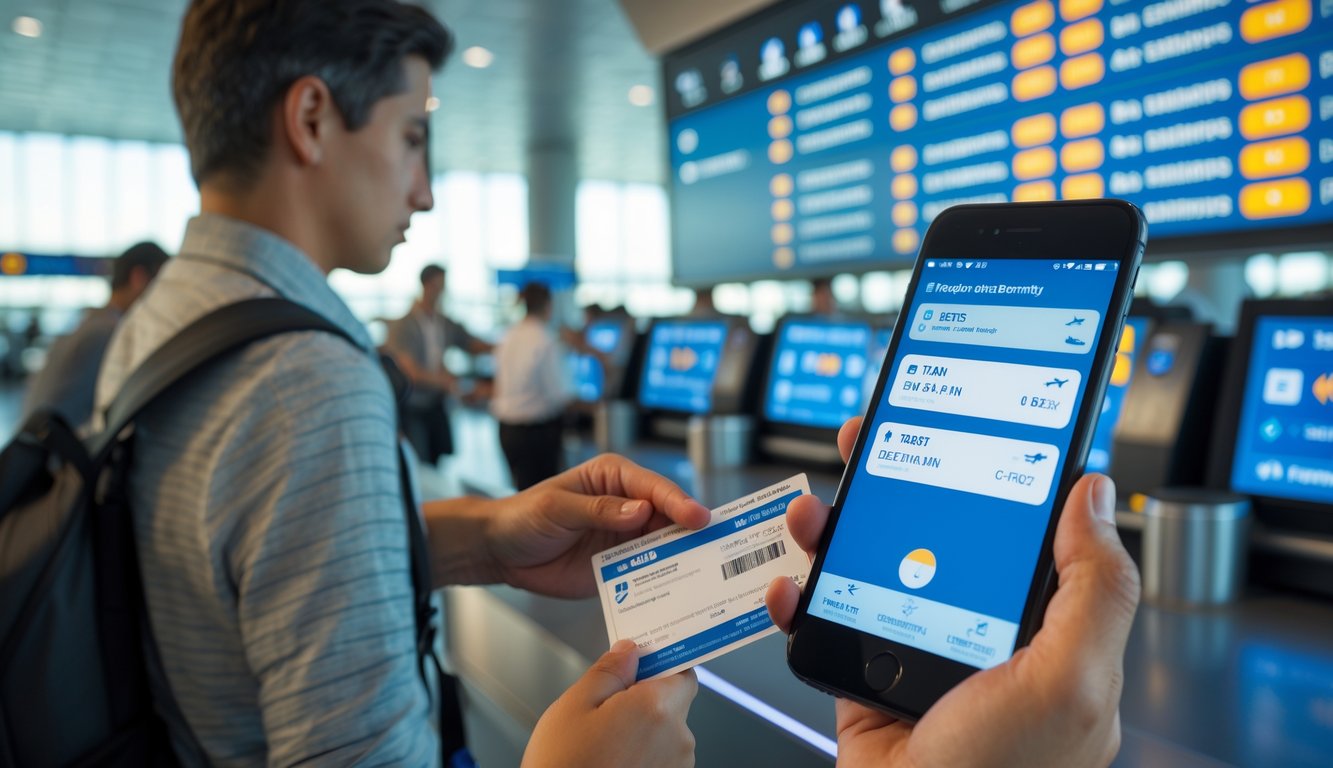
Consumer Protection and Regulatory Guidelines
Airlines love to shuffle penalty fees around. You check your ticket terms and—surprise!—the numbers changed overnight. Do they ever actually notify you? Nope. Suddenly it’s $150 to change a flight, not $25, and you’re supposed to just accept it. And don’t even get me started on how regulators seem just as lost as the rest of us.
U.S. Department of Transportation Oversight
So, is anyone actually watching the henhouse? Supposedly, the U.S. Department of Transportation (DOT) keeps airlines in check about hidden fees and makes them post all charges up front. But as of June 2025, DOT enforcement feels more like a slow-motion game of tag—airlines tweak their policies constantly, and the DOT barely keeps up.
DOT says it’ll fine airlines for shady stuff, but “transparent updates” can just be a new line in a 40-page FAQ nobody reads. I watched Delta quietly change its rebooking fees, and my travel agent friend only noticed because her client’s credit card got hit right before takeoff. My tip: screenshot every fare rule when you buy. I’ve seen websites update at 4 a.m. and erase your rights while you sleep.
How to Seek Support for Unnotified Penalties
Try calling customer service after a surprise penalty. You’ll get ten minutes of hold music and a script about “terms and conditions may change.” Consumer protection laws are supposed to help—EU 261 works for European flights (sometimes), but in the U.S. you’re stuck with the DOT complaint portal, which is buried somewhere in a maze of links (here, if you want it).
I’ve started keeping a spreadsheet of every penalty surprise just to keep my sanity. Compensation? Rare, and every airline has its own weird appeal process. My neighbor once got lucky—she had screenshots, filed with DOT, and eventually got her refund. But it took eight weeks, and the airline sent her two different forms with timestamps nobody could verify. If you want to win, you’ll need receipts, time, and a lot of patience.
Travel Insurance and Third-Party Protections
Every time I start to trust an airline’s penalty rules, they change. And people think “travel insurance” will save them? Not really. You show up waving your policy, and the agent tells you to call the insurer, who then points to some obscure exclusion you’ve never heard of.
Coverage for Unexpected Penalties
Here’s the thing: travel insurance almost never covers penalty hikes just because airlines decided to change things up. Ever read the actual policy? (I do, but only when I can’t sleep.) The exclusions are everywhere. Most policies only cover trip cancellations, not random fee jumps. According to the Insurance Information Institute (2022), travelers are way too optimistic about what insurance does—it’s not a magic shield.
You’ll find a table of “Covered Reasons”—jury duty, illness, hurricanes. “Airline jacked up penalty fees yesterday”? Not on there. Legal folks at LegalClarity are blunt: unless there’s a clear consumer protection law violation, you’re just stuck. The policy language gets tweaked every year, but fee hikes still slip through.
How Insurance Helps With Flight Changes
Insurance only works when you hit a very specific scenario. Trip interruption? Maybe. Family emergency? Sometimes. Changed your mind or got hit with a random penalty? Forget it. Your claim needs to fit whatever the underwriter considers “unforeseen,” and in my experience, penalty surges don’t count.
I watched a guy at the airport wave a fancy policy after Delta moved his flight and tacked on a fee. Insurer said nope—not a “covered reason.” Some providers try mediation, but as LegalClarity points out, most claims die on technicalities. Airlines and agents push “trip protection” add-ons, but they rarely cover much unless you meet a bunch of impossible requirements—TravelPander has a whole breakdown. I obsessively read the “trip interruption” and “change coverage” sections and have yet to find a policy that covers random penalty increases. Not once.
Enhancing Your Travel Experience Amid Changing Policies
Booking flights now feels like trying to dodge potholes you can’t see. Fees appear, disappear, then change again. I’ll be halfway through entering my passport number and suddenly the penalty policy has “just updated”—no warning, just a tiny new link promising “clarity” that never shows up.
Minimizing No-Show Risks
Miss one email and, poof, your trip’s a “no-show”—rebooking fee, ticket gone. Last time this happened, the agent seemed surprised I expected any warning. Airlines don’t shout about policy changes, so I set calendar alerts for everything.
People on FlyerTalk swear by printing itineraries and taping them to the fridge—apparently digital reminders aren’t enough. According to policy guides, acting in the first 24 hours is about the only safe move, unless you booked basic economy (which, why?). Who remembers every rule from three clicks ago?
Travel agents sometimes add “buffer days” to protect their clients from no-show penalties—ask around, you might get tips. I’ve seen people lose $500 because an alert landed in spam. If airlines just put a giant “NO-SHOW = NO REFUND” banner on booking pages, maybe customer service would get a break.



